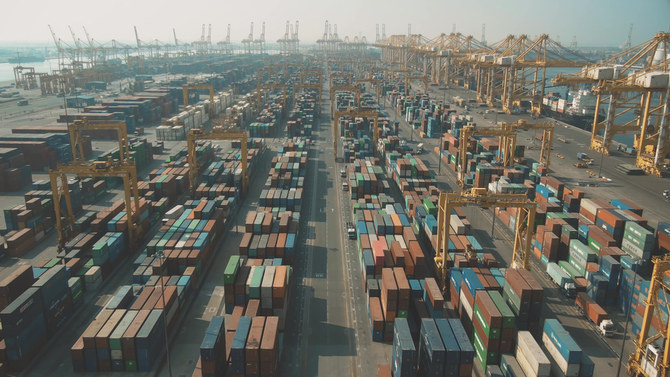
RIYADH: Saudi Arabia’s economy showed robust expansion in the non-oil private sector in November, driven by strong demand and the sharpest increase in new business inflows, despite cost pressures, an economic tracker showed.
However, the Kingdom’s Purchasing Managers’ Index dropped to 57.5 in November from October’s 58.4.
This dip is attributed to slower staff and inventory growth rates, coupled with a notable reduction in delivery times, according to the Riyad Bank Saudi Arabia PMI report, compiled by S&P Global.
Despite this decline, Saudi PMI remained well above the neutral threshold of 50.0, signifying a significant improvement in business conditions within the Kingdom’s non-oil private sector economy, the report added.
The new orders index, one of the two largest contributors to Saudi Arabia’s PMI, recorded the highest reading in five months, indicating improvements in market conditions, customer numbers, and investment spending.
Naif Al-Ghaith, chief economist at Riyad Bank, commented in the report: “Despite the expansion in new orders and output, the new export figures have remained relatively low to be in line with the non-oil exports figures posted by GASTAT (General Authority for Statistics).”
He added: “This weak performance in exports can be primarily attributed to the petrochemical sectors as this sector represents more than 29 percent of non-oil exports.”
Moreover, the latest survey data showed a notable surge in cost inflation in the non-oil economy, led by the fastest rise in overall input costs since June 2022, especially in construction. Although wage inflation moderated, it remained above average due to efforts to retain staff amid rising living costs.
Despite a slightly slower growth rate than the previous month’s record, the non-oil sector still experienced significant employment growth.
“Another factor affecting the PMI is the response of prices to input costs. Over the past few months, input prices have been increasing, and this trend has started to impact the price of final goods and services,” Al-Ghaith said.
He added that, due to competitive pressures, the impact on overall prices had been somewhat subdued. “This month, output prices recorded an increase, yet one that was slower than the increase in input prices.”
In conclusion, the report highlighted a substantial improvement in business expectations for the next 12 months in November, reaching the highest level since June. The heightened optimism is attributed to the widespread belief that strong new business inflows will spur increased activity, the report added.












